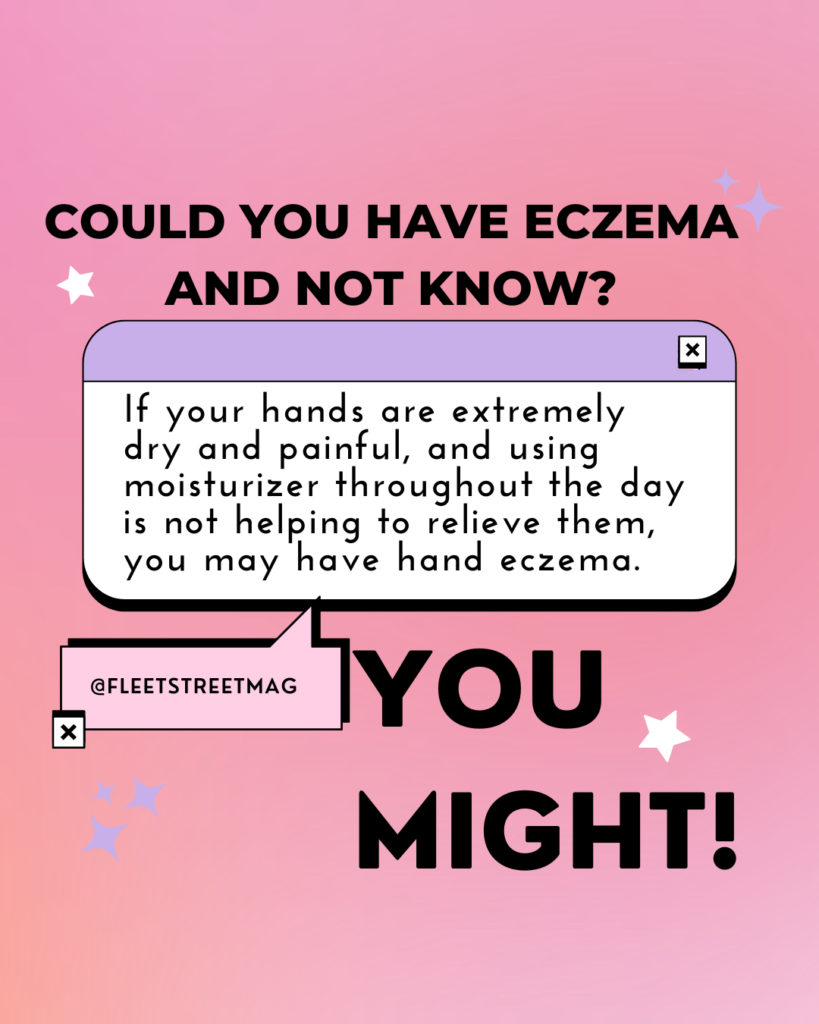As the weather gets colder, do you find yourself constantly reaching for hand cream? Yeah, same. My hands are so dry they flake in spots. Plus, they feel kinda itchy. That’s led me to wonder if maybe something more serious is going on: Are my hands dry or do I have eczema?
Editor-approved hand creams that can help dry, cracked skin
What is eczema?
A group of diseases fall into this category, and they all have one thing in common: skin inflammation. Eczema is also referred to as dermatitis. According to the Canadian Dermatology Association, there are three common types of eczema: Atopic Dermatitis and Contact Dermatitis – which can be either allergic or irritant-based. Flares happen with repeat exposure to triggers.

The telltale signs of eczema
I’m not sure if I was just thinking about my hands too much or what, but I felt like my symptoms were getting worse. However, my health practitioner wasn’t concerned, suggesting my skin was simply reacting to the changing temperature. Nothing a good moisturizer couldn’t fix.
And that, it turns out, is one of the telltale signs something more serious may be underfoot, er, hand. According to dermatologist Dr. Dawn Davis of the Mayo Clinic in Rochester, “If your hands are extremely dry and painful, and using moisturizer throughout the day is not helping to relieve them, you may have hand eczema.”
Other more definitive signs, according to the American Academy of Dermatology (AAD), include:
- Patches of red, dark brown, purple or gray irritated skin
- Scaly and inflamed skin that may itch
- Burning sensation
- Itchy blisters
- Deep, painful cracks
- Bleeding or weeping skin
- Crusts, pus and pain
What colour of nail polish is right for you?
What triggers eczema?
“Hand eczema can flare from a variety of triggers,” said Dr. Davis. “Some patients will see increased irritation in cooler, dry temperatures, while for others the condition may worsen during warmer months due to sweating. A trigger or flare for one patient could be different than flares or triggers for other patients.”
According to the CDA, the more common irritant dermatitis “is caused by repeated exposure to substances that chemically damage the skin, such as harsh soaps, detergents and cleaning products. These irritants remove oil and moisture from the outer layer of the skin, damaging the protective layer and triggering inflammation.”
People who work with chemicals and harsh detergents (think: healthcare workers and hairdressers) may be more at risk.
How to fix eczema on hands
“At the core of all eczema treatments is a sensitive skin care routine,” Dr. Davis said. “It’s important to note that patients with hand eczema may also have foot eczema. They’re parts of the body that we use often and as such are often exposed to harm from our environment and the chemicals and objects we use in our daily lives. They both have thick skin along the palms and soles, which protect the skin, but can also be difficult to hydrate.”
To prevent flare-ups, treat your hands with TLC. Use a gentle cleanser and always pat dry. Another tip, according to Dr. Davis, is to use fragrance-free cream or ointment instead of lotions, and to wear gloves if you have to deal with chemical irritants.
“It is important that people seek treatment for hand eczema so their skin doesn’t get infected, which can lead to cellulitis, a common, potentially serious bacterial skin infection” said Dr. Davis. “Patients can also develop an allergy to an irritant, and continued exposure to that allergen can increase how allergic you are to it. If you suspect that you have hand eczema and at-home treatments fail to bring you relief, make an appointment to see a board-certified dermatologist.”

